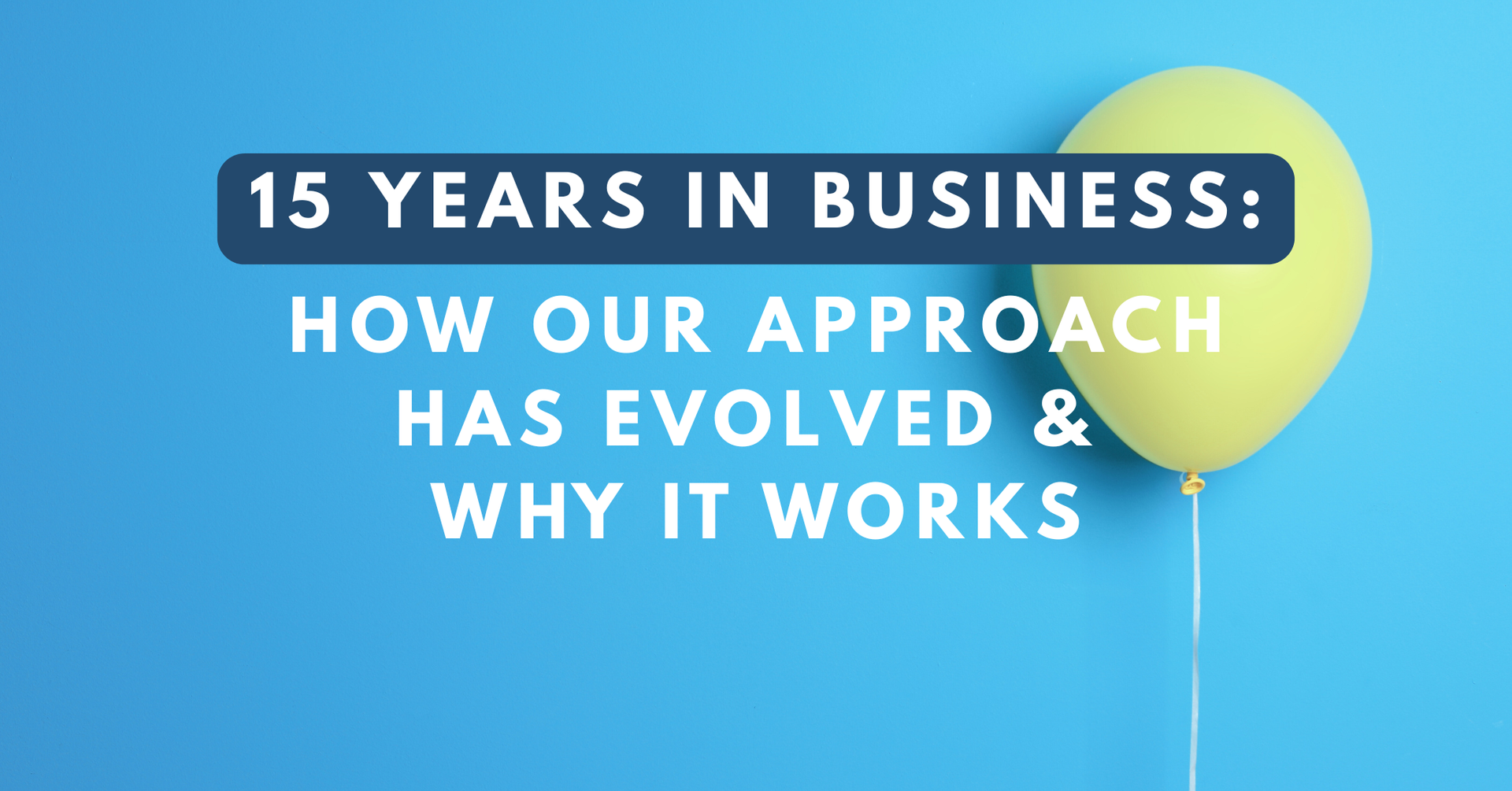An Introduction to Bonding for Contractors: Understanding Surety Bonds and Indemnification
See How We're Different
or call us: (858) 384‑1506
In 2024, I had the privilege of helping contractors secure over $12 million in surety bonds, allowing them to take on significant projects, earn profits, and grow their businesses. Many of these clients were new to bonding and unsure where to begin. Guiding them through securing their first payment and performance bonds was rewarding and a reminder of how necessary bonding is to the success of contractors in the construction industry.
Through this journey, I’ve noticed that one of the most significant areas of confusion for contractors revolves around indemnification, particularly the general indemnity agreements required by surety companies and the necessity for personal indemnification. In this blog, I want to demystify bonding and address these key concerns to help more contractors understand how bonds work and how they can benefit their businesses.
What Are Surety Bonds and Why Do Contractors Need Them?
Surety bonds play a critical role in the construction industry. They guarantee that contractors will fulfill their contractual obligations. They assure project owners (obligee) that the contractor (principal) has the financial backing and expertise to complete a project as agreed.
The Three Parties Involved
Every surety bond involves three key parties:
- Principal: The contractor purchasing the bond and performing the work.
- Obligee: The project owner or entity requiring the bond, often a government agency or private developer.
- Surety: The company issuing the bond, which guarantees the principal’s performance and payment obligations.
Types of Surety Bonds
- Bid Bonds: Guarantee that a contractor will honor their bid and provide the required performance and payment bonds if awarded the contract.
- Performance Bonds: Ensure the contractor completes the project according to the agreed terms.
- Payment Bonds: Protect subcontractors and suppliers by guaranteeing they’ll be paid for their work and materials.
- Maintenance Bonds: Cover defects or repairs after project completion
Why Are Surety Bonds Essential?
Surety bonds are often required for public and large private construction projects. They demonstrate a contractor’s credibility, financial stability, and commitment to fulfilling contractual obligations. Contractors may miss lucrative opportunities without bonding, as many project owners won’t even consider bids from unbonded companies.
By investing in bonding, contractors protect their clients and enhance their reputations, paving the way for business growth and stability. In the next section, I’ll walk you through what contractors can expect during the bonding process, especially if it’s their first time securing a bond.
The First-Time Bonding Process: What to Expect
Securing a surety bond for the first time can feel daunting, especially for contractors unfamiliar with the process. However, with the proper guidance and preparation, obtaining a bond is straightforward and can unlock significant growth opportunities for your business.
Prequalification: Laying the Groundwork
Before issuing a bond, surety companies require a thorough evaluation of your business to determine your financial stability and ability to complete the project. Here’s what they’ll look for:
- Financial Statements: Audited or reviewed financials that show your company’s profitability, liquidity, and net worth.
- Work History: A track record of successful projects, including references and details about your experience.
- Creditworthiness: Both business and personal credit scores may be reviewed to assess reliability.
- Business Plan: A clear plan for how your company operates and manages risks.
Pro Tip: If you’re a smaller contractor or new to bonding, ask about express bonding programs. These programs simplify the underwriting process and often allow contractors to secure bonds within a specific limit without extensive financial documentation. They’re a great way to start quickly while building your bonding history. As of 1/1/2025, our favorite express bonding program raised their single job and aggregate limit to $1,000,000! Once approved, our agency has power of attorney privilege to issue final bonds from our office.
The Application Process
- Choose a Surety Agent or Broker: To navigate the process, work with a trusted bonding professional (like our team).
- Submit Required Documents: Provide financial statements, proof of project history, and any other requested paperwork.
- Surety Underwriting: The surety evaluates your submission and determines your bonding capacity—how much work you can handle and the size of bonds you qualify for. Pro Tip: Look into express bonding programs if you’re starting or need a quicker option. These programs often allow smaller contractors to secure bonds up to a set limit with minimal documentation, making it easier to start while establishing your bonding history.
- Approval and Issuance: Once approved, the surety issues the bond, and you’re ready to proceed with your project.
Tips for Contractors New to Bonding
- Be Transparent: Honesty about your business’s strengths and challenges builds trust with surety.
- Stay Organized: Keep financial records, project histories, and other documentation current and easily accessible.
- Plan for Growth: View bonding as an investment in your company’s future, allowing you to take on larger, more profitable projects.
- Explore Express Bonding Programs: For contractors new to bonding, these streamlined programs can be a great way to secure bonds quickly while building your bonding track record.
First-time bonding may take extra effort but sets the stage for long-term success. With proper preparation and support, you can secure the bonds you need to build your business and strengthen your reputation. In the next section, I’ll address indemnification, one of the most misunderstood bonding aspects.
The Role of Indemnification in Surety Bonds
One of the most misunderstood aspects of bonding is indemnification. When a surety issues a bond, they take on a financial risk on behalf of the contractor. Indemnification is the mechanism that protects the surety company if a claim is made against the bond. Understanding this concept is crucial for contractors, especially those new to bonding.
What is a General Indemnity Agreement (GIA)?
A General Indemnity Agreement (GIA) is a legal contract between the contractor (and possibly other indemnitors) and the surety company. By signing a GIA, the contractor agrees to:
- Reimburse the Surety: Cover any costs the surety incurs if they must pay a claim or defend against one.
- Provide Collateral: Offer financial support to the surety if a claim appears likely or imminent.
- Authorize Surety’s Actions: Grant the surety the right to settle claims or take action to mitigate losses.
The GIA ensures that the surety will not bear financial losses for claims caused by the contractor’s failure to meet contractual obligations.
Why is Personal Indemnification Required?
Personal indemnification is often a sticking point for contractors, but it’s a necessary part of the bonding process, especially for smaller businesses or new contractors. Here’s why:
- Shared Accountability: If the contractor’s business cannot fulfill its obligations, the personal assets of the business owner(s) provide a safety net for the surety.
- Trust Building: Personal indemnification demonstrates commitment and accountability, reassuring the surety of the contractor’s dedication to completing projects responsibly.
- Mitigating Risk: Sureties must protect themselves from financial exposure, and personal indemnification reduces their risk when working with less established businesses.
Note: If the contractor firm is owned by another entity, the surety may require indemnification from the parent company instead of—or in addition to—individual owners. This ensures the surety still has a reliable source of financial backing if claims arise. The exact requirement will depend on the structure and financial standing of the parent entity.
Common Misconceptions About Indemnification
- “The Surety Will Cover All Losses”: A surety bond is not insurance; it’s a guarantee. The contractor is ultimately responsible for any claims paid by the surety.
- “Personal Indemnification is Overkill”: Personal indemnification is standard industry practice, especially for privately-owned businesses or contractors without significant bonding history.
How to Navigate Indemnification Requirements
- Understand the Terms: Review the GIA carefully and seek clarification on any points you don’t understand.
- Communicate Openly with Your Surety Agent: Discuss your concerns and work together to find solutions that protect both parties.
- Strengthen Your Business Financially: Demonstrating solid financial health can help reduce the need for extensive personal indemnification over time.
Indemnification is a cornerstone of the bonding process, ensuring the surety can confidently back your projects. By embracing it, contractors can access opportunities that might otherwise be out of reach. In the next section, we’ll explore the broader benefits of bonding and how it can help your business grow.
Benefits of Bonding for Your Business
Securing surety bonds is more than just meeting a requirement—an investment in your business that can yield significant advantages. Whether you’re a small contractor starting or an established company looking to scale, bonding offers a range of benefits that can elevate your reputation and open new opportunities.
- 1. Increased Credibility and Trust: Surety bonds demonstrate to project owners that you are financially stable, reliable, and committed to completing projects as agreed. This credibility can set you apart from unbonded competitors and build stronger client relationships.
- 2. Access to Larger Projects: Many public works projects and more significant private developments require bonded contractors. Without bonding, you may be excluded from bidding on these lucrative opportunities. A solid bonding history expands your eligibility for more extensive and profitable projects.
- 3. Protection for Clients and Partners: Surety bonds assure project owners, subcontractors, and suppliers will be protected if contractual obligations are not met. This safety net fosters trust and reduces risk for everyone involved.
- 4. Strengthened Financial Management: The bonding process often involves a detailed review of your business’s financial health and operational practices. Meeting these standards can help you identify areas for improvement and strengthen your overall business operations.
- 5. Competitive Advantage: Being bonded can serve as a selling point in a competitive market. It signals professionalism and accountability, qualities many project owners prioritize when selecting contractors.
- 6. Long-Term Business Growth: As you complete bonded projects successfully, you build a track record of reliability. This can lead to increased bonding capacity, allowing you to take on even larger projects in the future. Over time, bonding becomes a catalyst for sustained growth.
By leveraging bonding’s benefits, contractors can position their businesses for success while providing peace of mind to their clients. In the final section, I’ll explain how my team can help contractors navigate the bonding process and address any challenges they may face.
How Fusco Orsini & Associates Can Help
Navigating the bonding process can feel overwhelming, especially if you’re new to it or dealing with complex requirements like indemnification. That’s where Fusco Orsini & Associates comes in. With years of experience helping contractors secure surety bonds, we provide the expertise and personalized support you need to succeed.
Here’s how we can assist you:
- Guidance for First-Time Bonding: We’ll walk you through every step, from prequalification to issuance, ensuring you understand the process and requirements.
- Customized Bonding Solutions: Whether you need a bid bond, performance bond, or payment bond, we tailor our approach to meet your specific needs.
- Expertise in Indemnification: We’ll help you navigate indemnity agreements, answer your questions, and ensure you’re confident in your commitments.
- Support for Growth: As your bonding history and capacity grow, we’ll help you secure larger bonds and access bigger opportunities.
- Preapproval and Bonding Capacity: We can work with you to secure preapproval from sureties, giving you confidence when bidding on projects. Additionally, we’ll help establish your bonding capacity, so you’re prepared to take on larger contracts as your business grows.
Call to Action
Ready to explore the benefits of bonding for your business? Complete our form today to discuss your needs and get started. Whether you’re new to bonding or looking to expand your capabilities, we’re here to help. Thank you for visiting!







